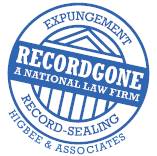The state of Michigan has enacted a new law in early 2015, a statute designed to permit the setting aside of certain criminal convictions. A person with a conviction of certain crimes arising in the state of Michigan may be able to benefit from the new statute, depending on the nature of the crimes and some other associated factors.

History of House Bill 4186
House Bill 4186 was introduced by Michigan Representative Stacy Oakes in February 2013, underscoring the lengthy process that the legislation was subjected to before it ultimately went into effect and became law in the state. House Bill 4186 was passed by the Michigan House and Senate in December 2014. The Bill reached the Governor’s desk at the very end of 2014. The Governor signed the Bill into law on December 31, 2014, with an effective date of January 15, 2015.
Prior Michigan Law
The prior law in the state of Michigan regarding the expungement of a criminal record was limited in its scope and application. The prior law in Michigan generally limited expungement to a situation in which a person had only one conviction on his or her criminal record. If a person met that requirement, that individual could seek an expungement after five years elapsed from the date of sentencing or prison release, which ever point in time is later.
The prior law in Michigan made this expungement process available to only a narrow classification of crimes. Eligible crimes did not include certain violent offenses, crimes involving sexual assault or abuse and those at the higher end of the felony scale. Moreover, and as has been noted, a person could only have one felony conviction in Michigan to qualify for an expungement.
Modifications of Expungement in Michigan Under the New Law
With the passage of House Bill 4186, the availability of expungement has been expanded in Michigan. First and foremost, expungement is no longer limited to a situation in which an individual has only one criminal conviction. With the enactment of this statute, a person can qualify for an expungement in certain cases if he or she has one felony conviction and up to two misdemeanor convictions on his or her criminal history record.
As was the case with the former law, the new statute does not permit expungement of certain types of crimes. These include: most sexual offenses, some instances of domestic violence, stalking and causing death by explosives. Traffic offenses, including driving under the influence, cannot be expunged. Finally, crimes in which the penalty is life imprisonment cannot be expunged under the terms and conditions of the new law.
The expungement process itself remains uncharged under the new law. A person seeking expungement files an application and a $50 fee with the sentencing court. The $50 fee is for a background check undertaken by the Attorney General’s Office. To check if you are eligible for expungement under the new law you can take an online eligibility test which has been updated to reflect the law changes brought about by HB 4186.
Following the background check, the Attorney General’s Office makes a recommendation to the court regarding the propriety of an expungement in a particular case. Historically, the Attorney General received about 2,500 expungement related applications annually, of which 1,000 were disqualified by the office. The remaining applications returned to the sentencing court for further proceedings.
How the New Expungement Law Helps Former Offenders in Michigan
Many men and women with criminal histories find it extremely difficult to find gainful employment. The reality is that employers of all types conduct thorough background checks when reviewing prospective employees. These background checks include examining criminal histories.
Although some employers weigh and balance the type of criminal history a person has, in some other cases, employers will simply eliminate an applicant from consideration no matter the record.
Thanks to the new law in Michigan, a person is able to receive the benefits of expungement in a wider range of circumstances. More people will be able to seek employment without the specter of a criminal history hanging over their heads.
Not only will an expunged crime not show up on a background check by an employer, other benefits accrue as well. Chief among them is the ability of a job applicant to respond in the negative when asked about being convicted of a crime that was expunged.
In the final analysis, the ability to obtain an expungement may make the difference between obtaining gainful employment in the highly competitive job market of the 21st century. The new expungement law in Michigan will permit a larger number of people the ability to move forward with their lives in a productive manner after serving their sentences for a prior crime.




3 Responses to Michigan House Bill 4186: New Michigan Expungement Law Passed